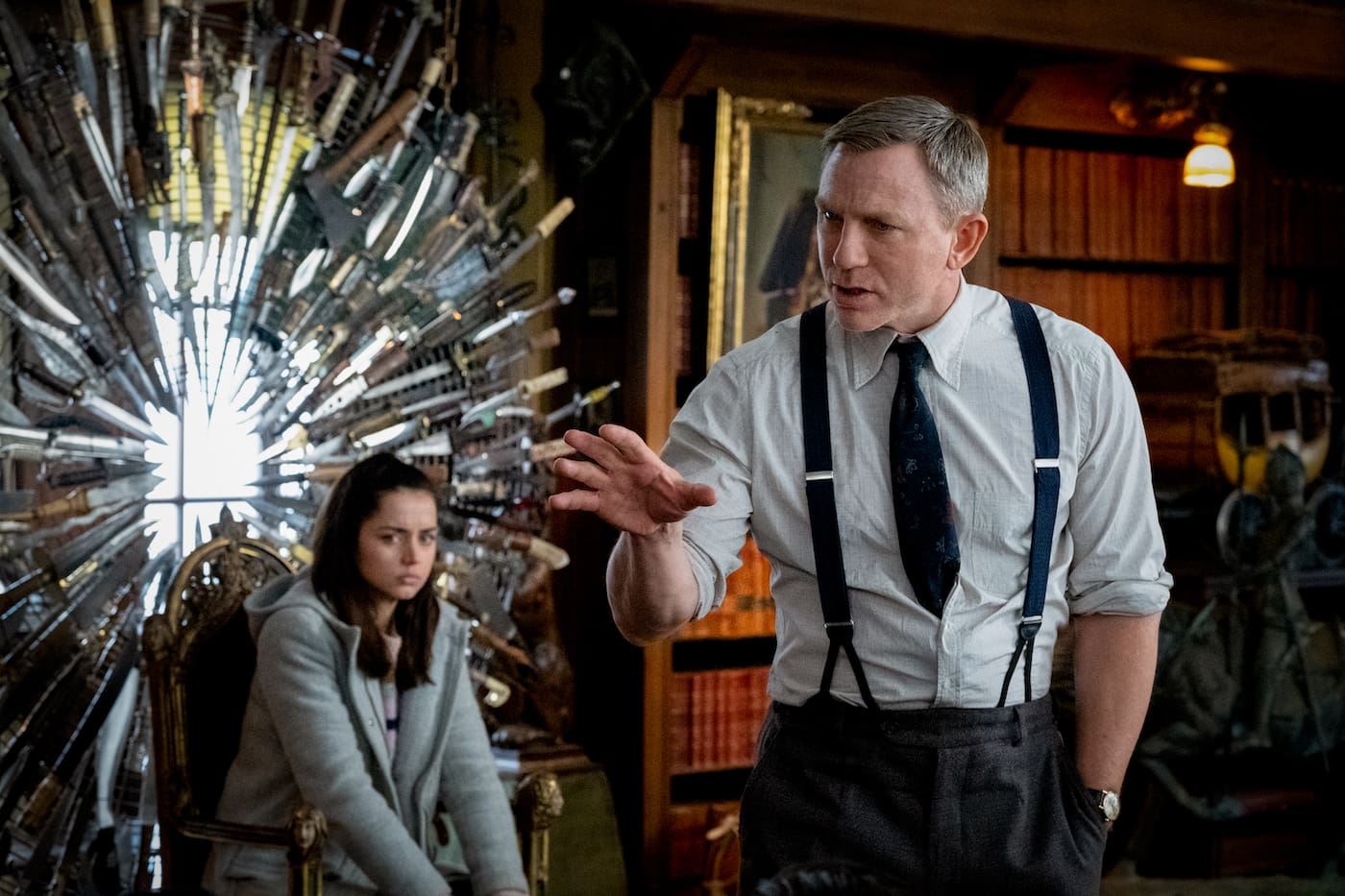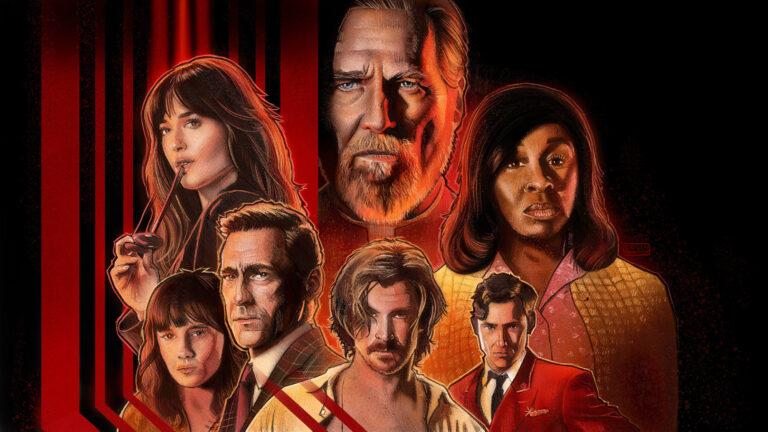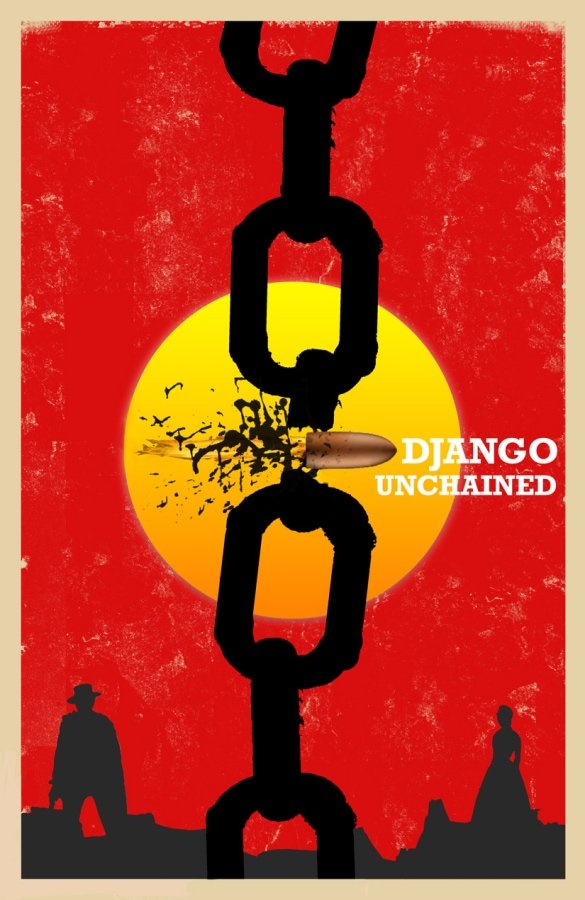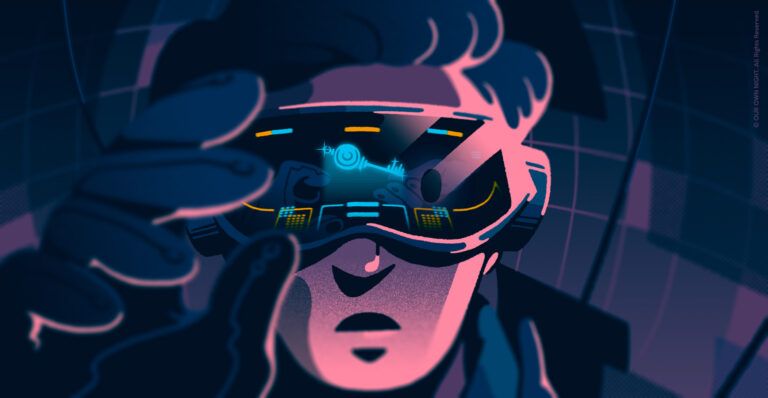The butler did it! But when have you ever known this to be true? And it’s physically impossible in this case, the whodunit film missing a butler entirely. But they’ve not done away with the self-righteous, wealthy, and self- entitled greed of the victim’s family, as often seen in such detective classics as Hercule Poirot and Miss Marple. Agatha Christie’s writings being a clear inspiration to Knives Out, along with the likeable and bumbling Columbo; a sleuth not to be underrated. This inspiration doesn’t extend to a hijacking of ideas though, the film’s originality having you guessing throughout as to who did it, and even then, you’ve probably got it wrong.
Opening with a pair of hounds, Knives Out sets the ominous tone as they run through the misty-autumnal grounds of a gothic styled mansion; its interior dark, rich and full of hidden passages, making it already morbidly creepy before anything has happened. The cinematic setting joined by the high-pitched and piercing notes of a violin, all of which add to the film’s sense of eeriness and drama. The scene has been set – death has come to the Thrombey family.

Credit: Claire Folger. Courtesy of Lionsgate Publicity
Murdered on his 85th birthday, the patriarch of the Thrombey family, Harlan (Christopher Plummer), is found with his neck cut – the pool of blood having run onto the bright white couch and matching rug – why white? Why? And why does this happen in every murder scene, ever? They should really think about investing in red furnishings, I’d hate to be the cleaner. From here we’re soon introduced to the suspects; it’s the rest of the Thrombeys. Each one poisonous and with their own motive, and all wanting to get their hands on Harlan’s wealth – of which they’ve become reliant upon. What makes it more poignant is that Harlan made his money through writing detective novels, the crimes committed and famously solved, but will his be?
Through various interviews we learn what happened on the night of Harlan’s death, and how each suspect was present at the time. But, in their individual retellings we see a different narrative than that told to the detectives. We also see in the background of these interviews the last of the gentleman sleuths, the famous Benoit Blanc (Daniel Craig), and in his southern drawl we learn he’s consulting on the case (more like leading it). Having been brought in to investigate by an unknown client. In this omission we learn that he’s as much in the dark as we are, or is he?
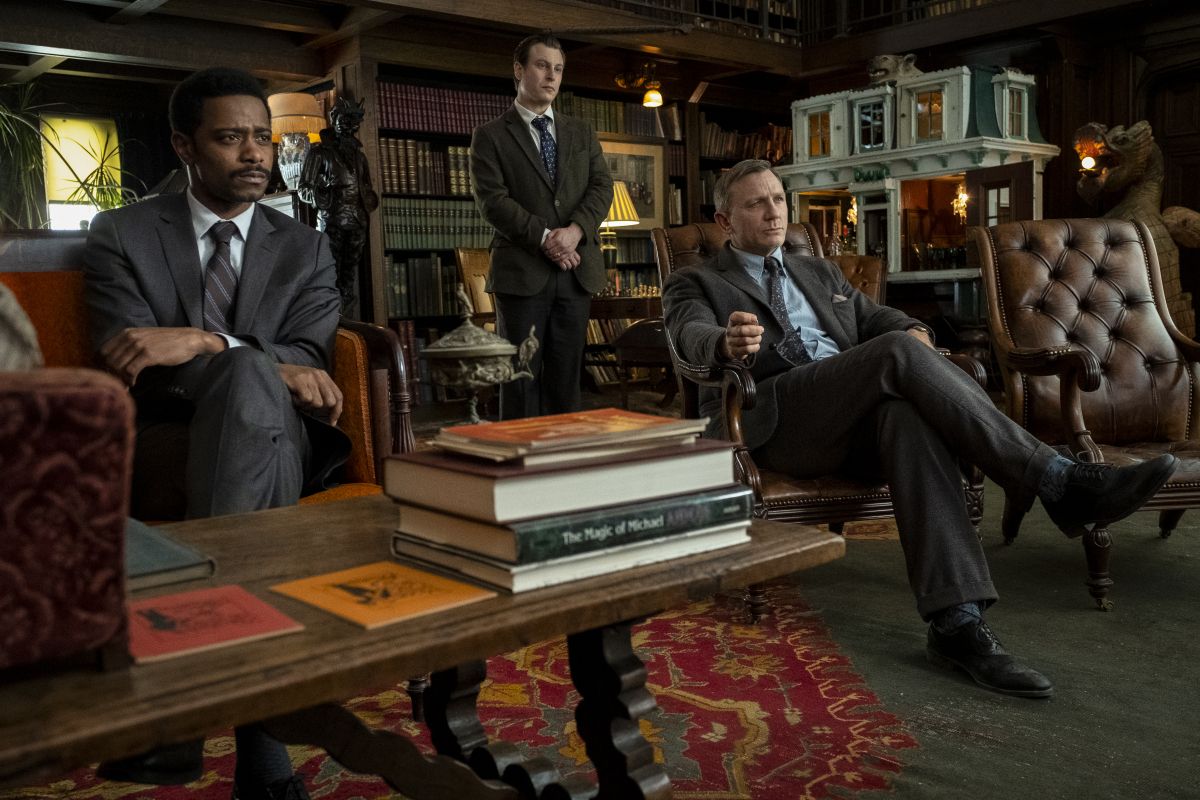 Credit: Claire Folger. Courtesy of Lionsgate Publicity
Credit: Claire Folger. Courtesy of Lionsgate Publicity
The only other person, apart from the “family” that was present on the night of Harlan’s murder is Marta (Ana de Armas); his nurse, and the only person who appears genuinely upset at his loss. Even more telling, is the fact that she’s a walking lie detector – having an almost instantaneous gag reflex whenever she lies. As Benoit Blanc states “Everyone can lie, well almost everyone.” So is Marta the key to solving the mystery?
Knives Out is a great example of cinematography telling the story as much as the dialogue, with a display of knives not just in the metaphorical sense – as everyone puts a dagger into each other’s backs or draws there claws out – but also in a theatrical and literal display of knives in a circle, which the suspects are interviewed against. Their bodies purposefully positioned to the side of the circle – for they’re only half-revealing the truth, while Marta, when interviewed is arranged dead-centre in the middle – she’s the heart of the story, the main perspective we follow, and the one most at risk. Finally at the end of the film the knives encircle Benoit Blanc’s head as a sort of halo, one that makes his epiphany apparent.
Knives Out has the usual suspense, a cache of secrets to be found, blackmail, great detective work and dogs that run around with the evidence in their mouths…….hang on? Yes this is a serious murder mystery and not a scooby-doo adventure, but it’s also hilarious and with undertones of social-political commentary – though this never dominates the story, it’s just there for you to pick up on, or not. Hopefully the former.
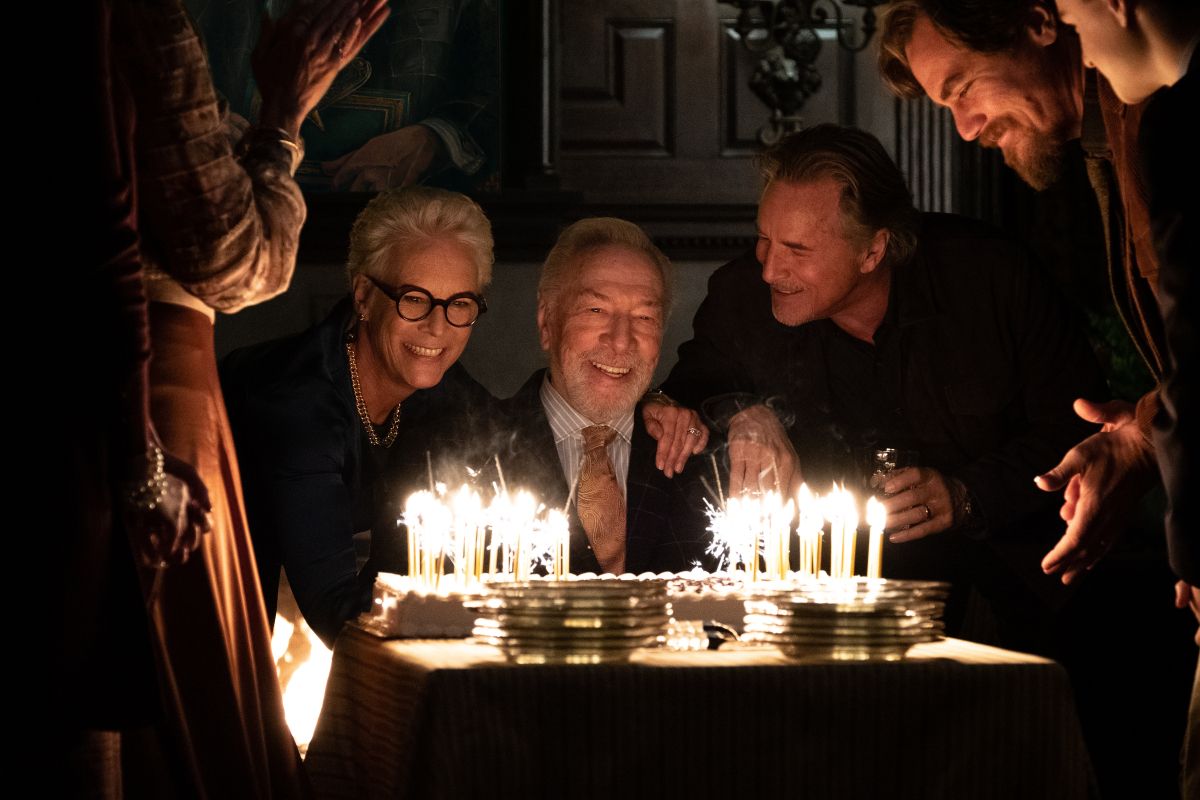 Credit: Claire Folger. Courtesy of Lionsgate Publicity
Credit: Claire Folger. Courtesy of Lionsgate Publicity
This not to subtle commentary looks at various points in today’s society, such as social media influences, and the right and left wing of politics; a Nazi grandson who does who knows what, on his phone, and negatively criticises his cousin as a snowflake; to selfies being discreetly taken. There’s also a dependency on wealth, the separation of class systems and snobbery, to immigration; with Marta being repeatedly referred to as coming from a different country, to which each Thrombey keeps stating different ones. Then there’s the repeatedly soft-spoken words of ‘you’re part of the family,’ but when the moment comes to show this, the Thrombeys instead scream that she’s not one of them, that she doesn’t belong. They also say that they each voted (within the family) for Marta come to Harlan’s funeral (of which she was excluded), and this is eventually said by enough of them, that if it was true, Marta would have been there. In other words, they’re lying, and their whole spiel of ‘you’re welcome’, ‘you’re part of the family’ is just a pretence to make them look and feel good – is this a reflection on society’s treatment regarding immigrants and refugees? I think so. More rose-tinted glasses come down (not that there were many to start with) when Marta is threatened with her mother’s deportation. Lastly, towards the end of Knives Out someone states that the house has always been a Thrombey home, to which Benoit Blanc states it’s only been a Thrombey house since it was bought in the 1980s – a comment perhaps on America and some people’s views of it being their land?
Knives Out is swamped by famous names, for on top of those already mentioned there’s Jamie Lee Curtis, LaKeith Stanfield, Michael Shannon, Don Johnson, Toni Collette, Katherine Langford and more. But it really kicks into high-gear with the long-awaited and troubled Ransom (played by Chris Evans). Because this character cuts through the falseness of his family with over-quotes of “eat shit” – a tall measure, but let’s hope it’s the case, all of them being pretty dislikeable. The star of the film, however, has to be Ana de Armas who plays Marta and evokes such empathy for her character that we gasp alongside her, our adrenalin racing to keep pace with her own, and our minds click into full production as we try to solve the puzzles presented before her.
Marta’s partnership with Benoit fits smoothly together as though they’ve always been long-time friends, or is he doing a Columbo? Is Benoit secretly smart, or has he been living just by luck? Something tells me it’s the former.
The film is clever, laughter-inducing, and will keep you switching in your mind as to who did it, even when it presents you with the facts. Knives Out is a great whodunit that will take a lifetime to meet its match.
Director & Writer: Rian Johnson
Other notable works:
- Looper 2012
- Brick 2005

